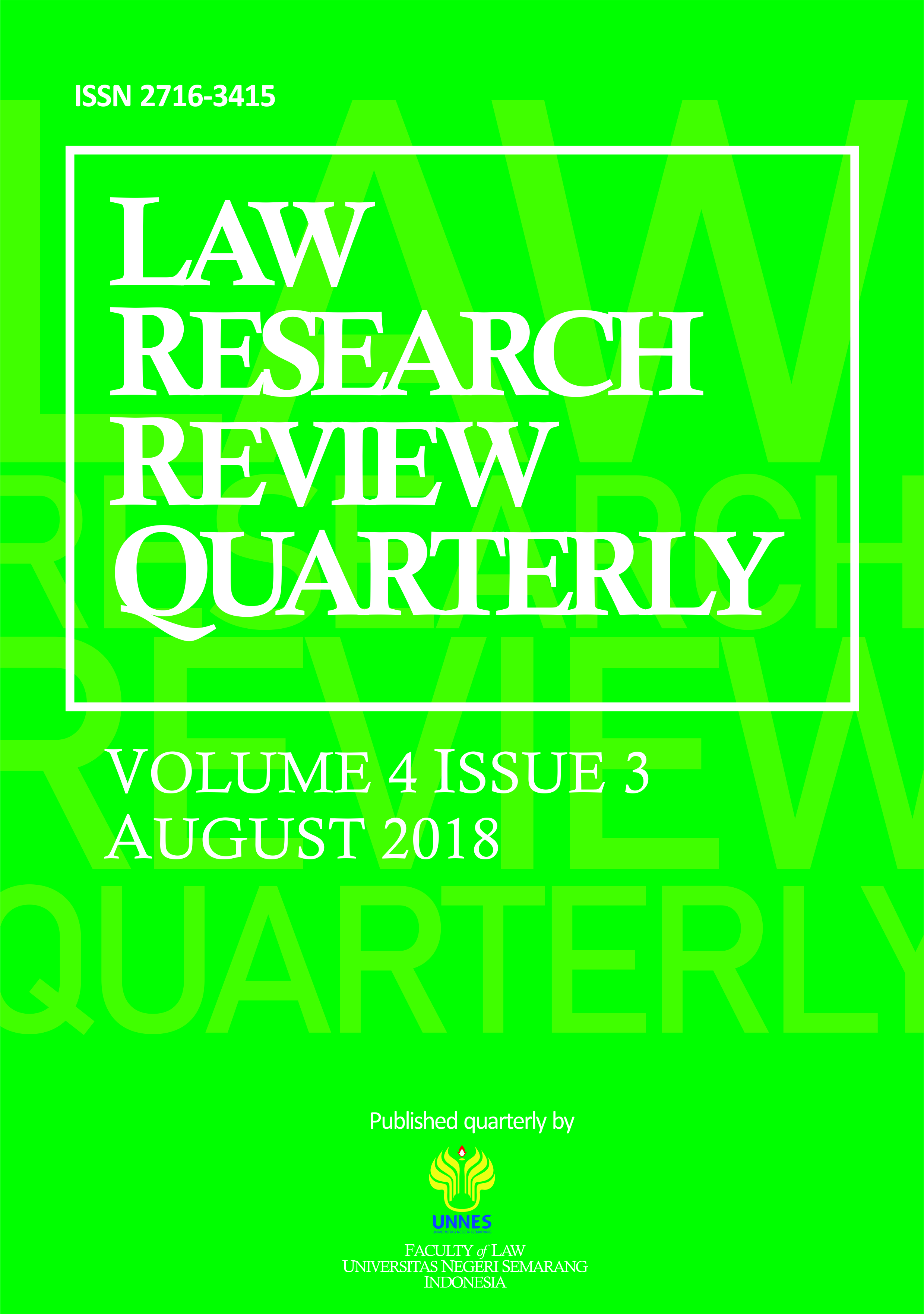Public Harmonization in Organizing the Rule of Law Democratic Party
Main Article Content
Abstract
Problems and violations of the course of the implementation of the democratic party in the Indonesian law state, of course, have become a matter of great concern. Where the community began to fret and uncomfortable about the problems caused by some groups or persons with the intention to damage, incite and create a ruckus even do everything they can to disrupt the process of carrying out the democratic party. Harmonization is a natural sense in carrying out harmony or one form of effort in producing something sublime unity. This paper provides a positive study based on normative theories and methods of drawing conclusions from general matters to specific matters. Where the harmonization of the public must be created and carried out in organizing the democratic party to avoid things that can damage the unity of the nation and the occurrence of all forms of violations and criminal acts in the course of the democratic party of the rule of law of Indonesia. To realize this, where all components in the continuation of the implementation of the democratic party, it is expected that all the people, prospective participants or contestants in the election and state institutions that have received the mandate from the government must create and create a democratic party atmosphere that is consistent with election principles and regulated in Chapter 2 Article 2 of Law No.7 of 2017.
Article Details
All writings published in this journal are personal views of the authors and do not represent the views of this journal and the author's affiliated institutions. Author(s) are retain the copyrights of the Article. However, before publishing, it is required to obtain written confirmation from Author(s) in order to ensure the originality (Author Statement of Originality). The statement is to be signed by at least one of the authors who have obtained the assent of the co-author(s) where applicable.This work licensed under a Creative Commons Attribution-ShareAlike 4.0 International (CC BY-SA 4.0)
References
Afan Gaffar. (2006). Politik Indonesia Transisi Menuju Demokrasi. Pustaka Belajar, Yogyakarta.
Dicey, A.V. (2008). Pengantar Study Hukum Konstitusi, Cetakan Kedua, Nusamedia, Bandung.
Debdikbud, (2002). Kamus Besar Bahasa Indonesia, Bulan Bintang, Jakarta.
Jimly Asshiddiqe. (2010), Konstitusi dan Konstitusionalisme Indonesia. Sinar Grafika, Yogyakarta.
Mahfud MD, (2010). Membangun Politik Hukum, Menerapkan Konstitusi, Rajawali Pers, Jakarta.
Makalah Seminar
E.Y. Lestari. Menghindari Tindak Pidana Pemilu: Belajar dari Konflik Pemilihan Umum Kepala Daerah dan Wakil Kepala Daerah, kutipan dari pemakalah SNH, Semarang : FH UNNES, Thn. 2018, Hlm. 212-227
R.Sacipto, Ciptono. Eksistensi Polri dalam Penegakan Hukum Tindak Pidana Pemilu Menyongsong Pesta Demokrasi Indonesia 2019, kutipan dari Pemakalah SNH, Semarang : FH UNNES, Thn. 2018, Hlm. 386-397
Data Elektronik
https://www.hukumonline.com/berita/baca/lt545d53acce43e/topo-santoso-paparkan-pentingnya-hukum-pidana-dalam-proses-demokrasi, diakses pada tanggal 29 Oktober 2018
http://humas.unej.ac.id/prof-dr-teguh-prasetyo-demokrasi-harus-berkualitas-dan-bermartabat/?lang=id, diakses pada tanggal 29 Oktober 2018
https://tifiacerdikia.com/lecture/lecture-5/pendidikan-kewarganegaraan/konsep-negara-hukum/, diakses pada tanggal 29 Oktober 2018
https://news.detik.com/berita/3809989/ini-10-catatan-potensi-permasalahan-di-pilkada-serentak, diakses pada tanggal 1 November 2018
Jimly, Asshidiqie, Ideologi, Pancasila dan Konstitusi, sumber http://www.jimly.com, diakses pada tanggal 1 November 2018
